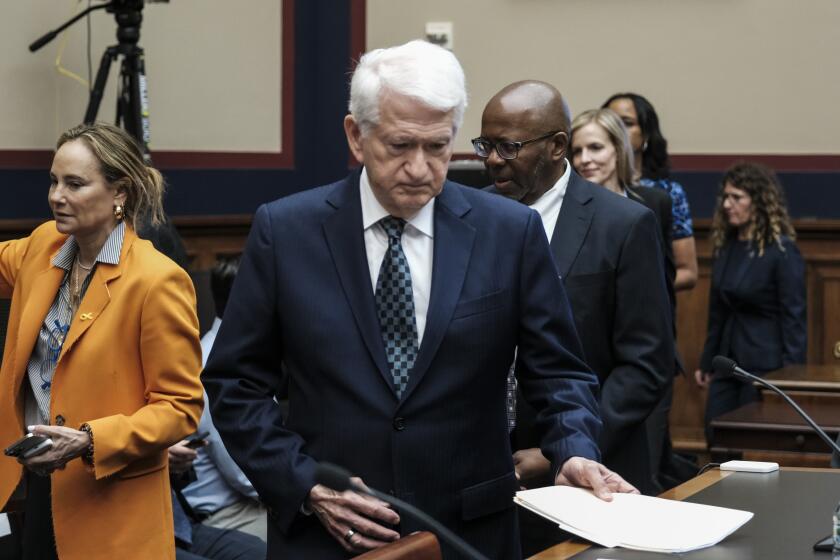UCLA Chancellor Gene Block was questioned by members of Congress regarding his handling of complaints of campus antisemitism amid student protests over the Israel-Hamas war. The hearing, organized by the GOP-led House Committee on Education and the Workforce, focused on UCLA as an example of mishandling protests. After a Palestinian solidarity encampment was set up on campus and complaints of discrimination arose, the encampment was dismantled due to violence from pro-Israel counterprotesters. The hearing turned into a political battleground rather than a discussion on balancing free speech and student protection.
Block admitted that UCLA made errors in judgment by not immediately shutting down the encampment when it disrupted access to classes and impeded the educational mission of the university. However, he did not offer specific solutions on how to prevent discrimination or violence in the future. Despite campus-wide memos declaring the encampment unlawful, Block did not mention any disciplinary action against students who violated UCLA rules. Rep. Ilhan Omar criticized UCLA for failing to intervene as a “mob of agitators” gathered near the encampment, questioning how they could let the situation escalate.
Rep. Kevin Kiley raised the issue of protesters physically obstructing students from entering campus based on their race, ethnicity, or religion, potentially being an expellable offense. Block confirmed that there is a disciplinary process for such actions but did not confirm if the protesters were reprimanded. Block acknowledged the presence of antisemitism on campus, noting that Jewish students have faced disturbing rhetoric and images. He mentioned that the university has conducted training on the issue, but believes more needs to be done to address the problem. Block disputed claims that UCLA is a hotbed of antisemitism but acknowledged incidents that need to be addressed.
The hearing highlighted UCLA’s response to the protests, with Republicans and some Democrats criticizing the university for not taking action sooner to prevent discrimination and violence on campus. Block’s admission of errors in judgment and vague responses to questions about disciplinary actions for students involved in blocking passage raised further concerns about UCLA’s handling of the situation. The politicization of the hearing overshadowed any potential for a constructive discussion on balancing free speech and student protection on campus. Moving forward, UCLA may need to reassess its approach to handling protests and addressing instances of discrimination to create a safer and more inclusive environment for all students.


